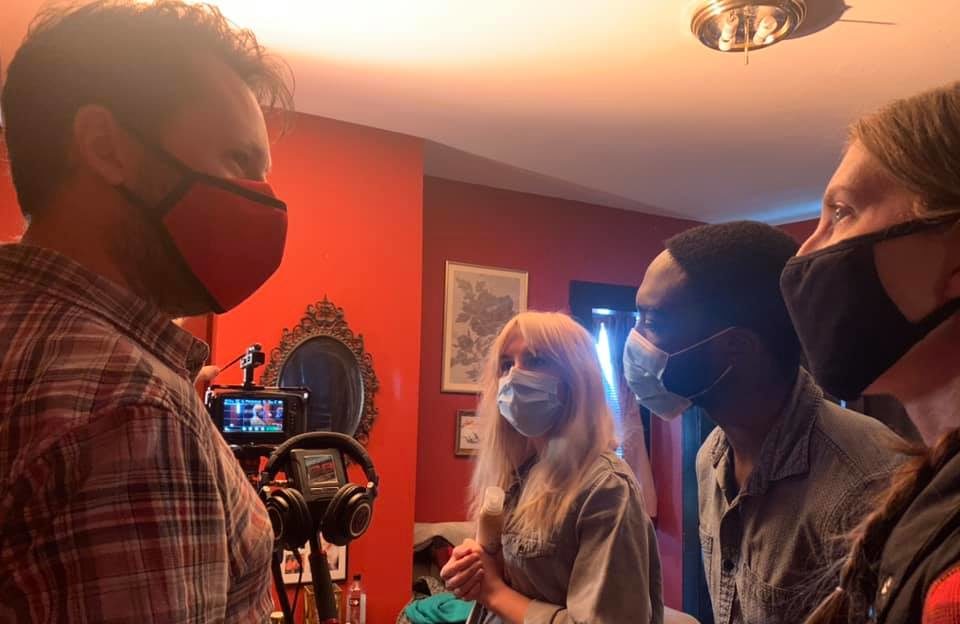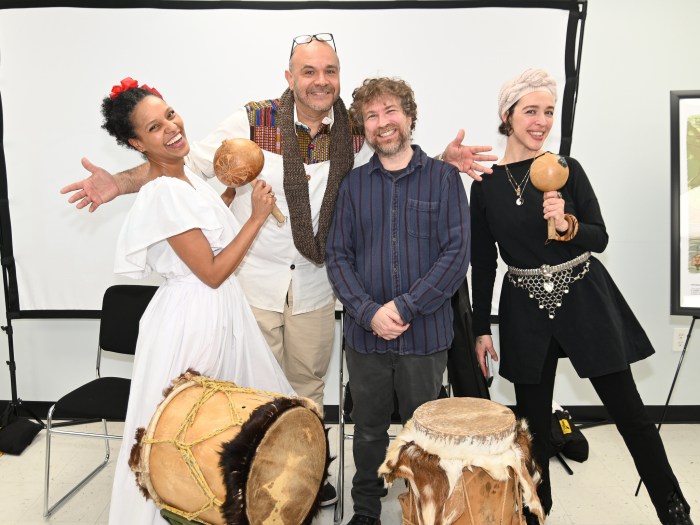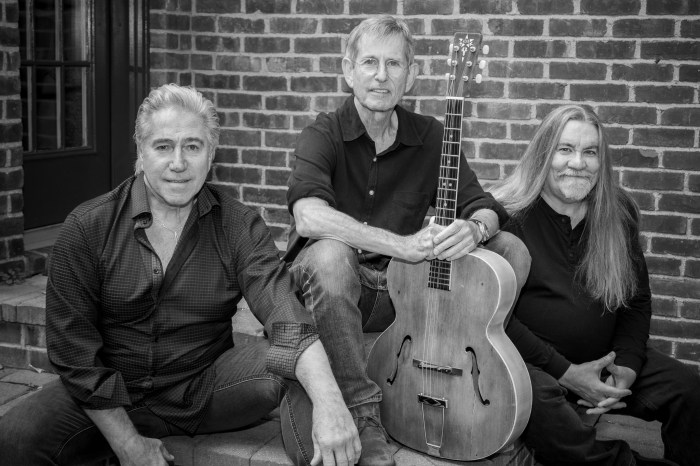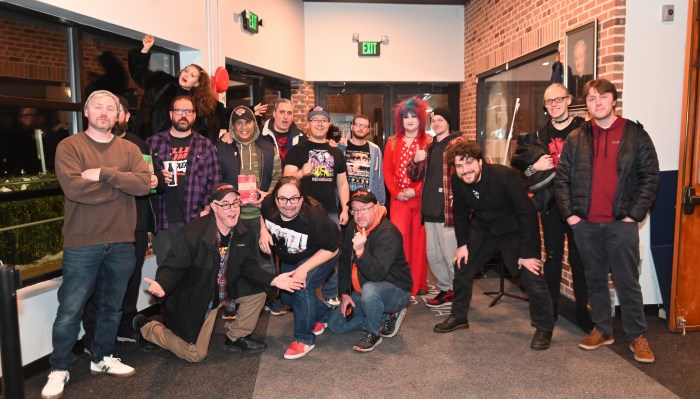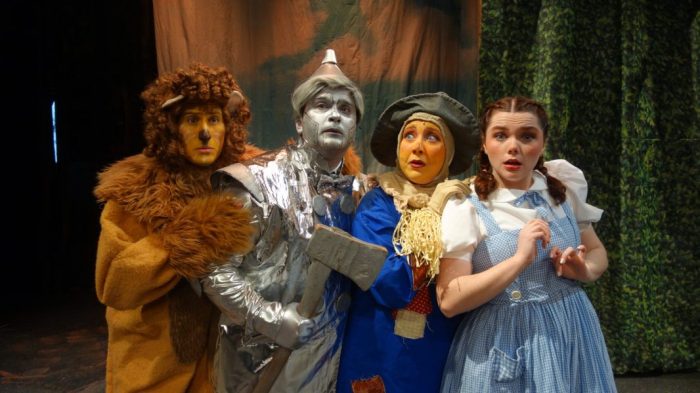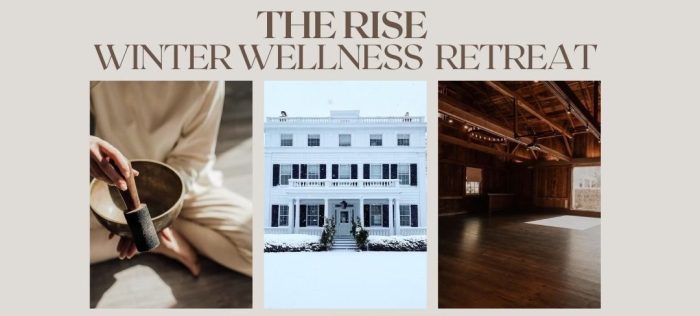Spark Creative Works, a Long Island-based, women-led nonprofit theatrical group dedicated to fostering opportunities for original female authors, is turning top submissions from its Women’s Playwriting Festival into big-screen motion pictures.
The call for writers attracted more than 350 short play submissions. Of those, the top 25 scripts were to be performed live in a new format so that the show can go on safely and will be turned into short films that will be shown at an outdoor venue during the summer of 2021. In addition, 100 plays that were in consideration for the Top 25 spots were selected for virtual showcases, which can be accessed through the group’s website.
While plays and short films are the current focus of the organization, improv performances, stand-up comedy nights, puppetry, music, dance projects, and more are also featured and welcome. Spark Creative Works is the parent company of Cherry Bomb Improv, LI’s first all-women’s improv and comedy troupe.
Spark Creative Works was founded by actress, writer, and director Jes Almeida who has more than 18 years of on-stage experience, including appearing at the renowned Edinburgh Fringe Festival. She is a company member of the Long Island Children’s Museum Theatre and has started delving into the movie industry via work on several short films, independent films, and large-scale productions.
Over the course of her career, she noticed a dearth of opportunities for female directors and playwrights (especially in the local community) as well as a lack of quality roles available to women. She decided to make a change. With her longtime friend and colleague, Megan Toffolo, Almeida established Spark Creative Works Inc.—the name an allusion to sparking ideas and conversations.
Almeida recently discussed the organization, her career, and the Women’s Playwriting Project.
How did you discover your passion for theatre and how did you establish yourself in the industry? My passion for the arts was discovered pretty early on. My father was an on-air radio personality in Connecticut and most of my immediate family have always been supporters of the arts. My father was a fan of Broadway and music in general and absolutely passed that love down to my brother and me. We had a very musical household. Eventually, that led me to take opera lessons, flute lessons and audition for local community theatre programs at 12 years old. Most people would be very surprised if you told them now, but I used to be very shy as a kid! The arts really helped me open up. At that point, I gave up sports and joined my high school theatre group. My passion always ran strong! In addition to our high school theatre program, I sought out performance opportunities outside of school like roles in other regional theatre groups and on local short film projects that were close to home in Connecticut. I even began researching how to get more involved in the business at age 14 looking back on it… I was a comically committed kid! Admittedly, I’ve always been a bit ambitious and my parents (my father in particular) were very supportive of that. For this, I am very thankful because that isn’t always the case for many artists and I was never pressured to choose a profession that did not feel fulfilling.
I have always been torn over my love for theatre and film. I began my first year as an undergrad at Hofstra University’s as a theatre major where I considered switching my major to a production/film-related major. I decided to transfer to Western CT State University to pursue performance. To not feel like just a number in a huge department I wanted to have a smaller class size and in turn more hands-on opportunities. It was the right decision. With WestCon I had the opportunity to perform at the Edinburgh Fringe Festival in Scotland and took part in several NYC productions. In addition, I had the opportunity to compete at the KCACTF (Kennedy Center American College Theatre Festival) three times in different areas of performance and production.
During my education I also worked in a featured background actor capacity on two large-scale SAG productions which earned me my SAG eligibility. After graduating I moved to Long Island due to its closer proximity to the city and I began establishing myself through auditioning for various theaters on Long Island. While attending college I also discovered a love for directing and made connections with fellow artists that I still maintain to this day. Some of which are working on this project! We would take part in 48-hour film festivals in which you have 48 hours to complete a short film from start to finish.
It’s a tough business and people tend to give up. Every artist gets discouraged at one point or another. I’ve learned to focus on positive outcomes and not fixate on the negative. I’m lucky to have had so many opportunities which I attribute to more than just luck. I had great teachers along the way who not only taught me to go out and seek those opportunities, but to create my own because very rarely do they ever just fall into your lap.
How did you first become aware of the lack of opportunities for women in theater and why do you think this dearth exists? Growing up in Connecticut, I was raised with a strong sense of gender equality by my parents, particularly my father, and had a very feminist (male and female) teacher support system. Coming into the real world and auditioning and applying for other theatre companies and film projects on Long Island and in New York I quickly came to the realization that with each connection I made and each step up the ladder I took, there were less women in the room with me making decisions.
Both theatre and film industries have an undeniable gender gap in leadership positions such as director, producers, designers, and other crew positions- not to mention actors! There are far more lead roles and supporting roles of substance for men compared to what is available to women. When they are available it is hard to avoid noticing how women are portrayed; killed off, pushed aside, and used as one-dimensional objects to tell a male narrative. For a contrasting example: Peaky Blinders (Netflix) uses the rape and murder of women as a foundation for the male character’s sense of morality instead of portraying these events from the female character’s perspective to build her character up. But The Queen’s Gambit (Netflix) beautifully captures the journey of a young woman in a man’s world of chess competitions during the 1960s. The men around her helped build her up and were fully realized characters themselves. The main character had profound struggles that felt grounded and not one murder or rape was necessary to add depth to her journey. It has me questioning, with so many stories left to tell…why do we keep telling the same ones?
Why do I think this dearth exists? Well, partly, because the industry perpetuates it. I think it is rare for women to be sought out in particular for leadership positions unless the subject matter pertains to women specifically. Often, we see males in leadership roles offer new positions that may open up under their leadership to fellow males. I don’t think these issues are always at the forefront of a decision maker’s mind and ingrained habits are difficult to break. We are still evolving as a society and it has taken us a long time to get as far as we are right now and it will take more time to get to a true place of equality regarding representation in the industry.
It’s worth noting that men are just as important to gender equality. It’s all about working together, side by side, to make sure opportunities are evenly distributed and that the work we’re putting out into the world represents stories and people in an appropriate and varying way.
Making a commitment to empowering women within our creative community is the first step towards equal representation.
How difficult was it to establish Spark Creative Works and keep it afloat? Establishing Spark took a lot of research, hard work, and some exceptionally long nights. Our VP Megan Toffolo and I established this group together and we have had our hand in everything from our initial nonprofit filing to establishing our logo, website branding, and marketing. We submit for our own grants and create our own programs. It has truly been a labor of love and a journey we have learned so much from. Keeping it afloat, like with many small arts companies has its challenges and this pandemic has not made it easy on any of us, as we haven’t been able to hold any live events this year. However, we are lucky that we are a bit of a nomadic group that functions on a project-to-project basis, which allows us to scale up or down as needed and we were able to switch gears with our project. In addition, our five board members have done an amazing job consulting with each other, making wise decisions together and keeping us afloat. I am truly thankful to have such a dedicated team of professionals on board; Megan Toffolo (Vice President), Jackie Massé (Treasurer), Nikki Silva (Secretary), and Gianna Zuffante (Board Member/Marketing & Events Coordinator) work fervently beside me providing support, expertise, and new ideas to make sure we are fulfilling our mission as a nonprofit arts company.
I am so grateful to have such a wonderful team, and more than that, we’ve all become greater friends in the process.
How did you select the 125 plays to produce out of more than 350? What, specifically, did you seek? Well, we ended up getting a lot more submissions than anticipated and we attribute some of that to the initial Covid-19 shutdown. Writers needed an outlet and we were happy to provide one. We organized reading groups over Zoom that lasted 3-to-4 hours a night for five days a week for two months to get through all of the submissions and I actually read all of them! Every single one. These readings always had at least two of our board members present and a group of actors.
We would read each play then discuss them briefly after which the group would assign it a score. This sparked (pardon the pun) some great discussions. Many of the actors involved loved the process as it gave them something to keep their skills fresh and to work on since our community cannot perform live yet.
In terms of material, we were looking for original short play scripts under 21 pages. When selecting plays we were looking for scripts that portrayed layered women that were not one-dimensional characters. We were looking for work that spoke to the female experience and female issues across the board. Of course, the most important requirement was that each piece must be written by a woman.
How did you choose the 25 plays to be turned into short films? There was a lot to consider. We took the top 50 highest-scoring plays and took a look into which locations seemed feasible given the current health restrictions. We had to consider the number of actors and crew members we could have on each set due to the pandemic. Most importantly we asked ourselves, “What stories best highlight women’s issues?” “What stories present women as individuals with a well-rounded narrative?” and “What stories do we need to hear?”
Where do you envision the live film festival taking place? Since our initial expansion of the project, we have always envisioned and planned for an outdoor venue where people could come and enjoy our event safely and distanced. We are still uncertain as to what restrictions will be like come early September so we are at the mercy of the current health guidelines as is the rest of our industry. We stand by those guidelines. We want to make sure everyone involved and our audience members are able to view our work safely.
Which plays stood out to you in particular and why? Oh my goodness, hard question! One of them that really stuck with me was a virtual play that we just streamed during our first showcase called The Cleaning Ladies written by Clinnesha D. Sibley. The play takes place on the same day as the assassination of Malcolm X at the Audubon theatre where it happened. The playwright was researching the topic and found that there were three cleaning ladies that were sent to clean up the scene of the murder that day. Without much info on the real cleaning ladies, Clinnesha envisioned the characters of Thelma, Melanie, and Stephanie. She constructed (and beautifully so) a play that tackles the issues of being a black woman at the time of the assassination and what that moment meant to the black community. Clinnesha was also amazing to work with! She answered questions and left room for discussion, exploration, and the process. This play is a prime example of how the arts give a platform to issues that need to be highlighted. It’s important to discuss race even if it makes us uncomfortable. The play holds so much relevance to the current climate of racial injustice and it’s important to acknowledge the past and work to make the world better for everyone in it. I hope it has so much success beyond our festival.
How do you determine which plays will run in each specific month? We have a list of the plays we’ve selected to be presented virtually and we work to create balance in our showcase. Many factors are weighed by our committee such as which issues are to be highlighted, comedy vs. drama, and length of pieces which collectively need to fall under three hours in length. All of these factors help us create our virtual showcase line-up each month. We are rooting for the success of all of our playwrights!
Might this become an annual event? We would love to make this an annual event! Producing original work is a truly fulfilling experience for all involved. The original format of the festival was envisioned as a live performance however due to the circumstances beyond our control we adapted quickly and productively to expand the festival to virtual and film formats. We are grateful for the trust each playwright, actor, director, and crew members have given us in the making of this festival. So, in the future Spark Creative Works will continue to adapt and provide the space and platform for female voices to be heard.
How do you hope your career evolves and expands from here? My definition of success might differ from many, but personally, I just want to keep creating good work and work that is important to me. As long as I can keep doing that and help extend those opportunities to others, I will consider myself very fulfilled. One goal of mine has always been to start my own theatre and film production company which I am working towards currently despite a global pandemic. Thinking about that feels wild and I’m so proud of what this group has been able to accomplish during this time.
What projects are coming up for you soon and is there anything else that you would like to mention? This festival will be keeping us busy until the end of the summer. Beyond, Spark Creative Works has the intention to produce live events as soon as we are able. This will include classical works with a fresh spin, plays by established female authors and more opportunities to showcase new works. We would also like to send a huge thank you out to The Huntington Arts Council as they have been very flexible in regard to working with their grant projects during the course of the pandemic.
If anyone is interested in our mission and getting involved with us you can find more info at sparkcreativeworksli.org. If you are looking for ways to support what we do, we have opportunities for business sponsorships. In addition, we are a nonprofit organization so any donations to our project are tax deductible and will go towards our current project and creating future opportunities for women artists.
To learn more about the Women’s Playwriting Project and/or Spark Creative Works, visit their official website, Facebook, and follow the, on Instagram via @spark_creative_works
For more entertainment coverage, visit longislandpress.com/category/entertainment
Sign up for Long Island Press’ email newsletters here. Sign up for home delivery of Long Island Press here. Sign up for discounts by becoming a Long Island Press community partner here.



